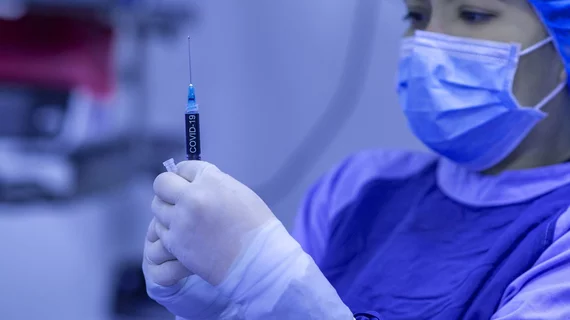Patient who received 6 doses of COVID-19 vaccine reports no adverse reaction
A patient who was given five times the regular dose of a COVID-19 vaccine by a distracted nurse has reported no adverse symptoms after being monitored at a hospital, CBS News reported.
The incident, which happened in Rome, occurred on Sunday, May 9. The patient was kept under observation for roughly 24 hours in the emergency room of Noa Hospital in Massa, Tuscany, where the vaccine was distributed. While doctors gave the affected woman fluids and anti-inflammatory and fever medications as preventative measures, no such fever appeared, and she was sent home.
"This person at this time will certainly not have side effects," Antonella Vicenti, director of infectious diseases at Noa Hospital, told CBS News.
Other studies on the Pfizer Covid-19 vaccine have revealed no adverse effects for patients receiving up to five times the normal dosage. However, it’s unknown what the long-term effect of the high dosage on antibodies for the woman. The hospital has since launched an investigation into its safety practices.
See the full story below:

